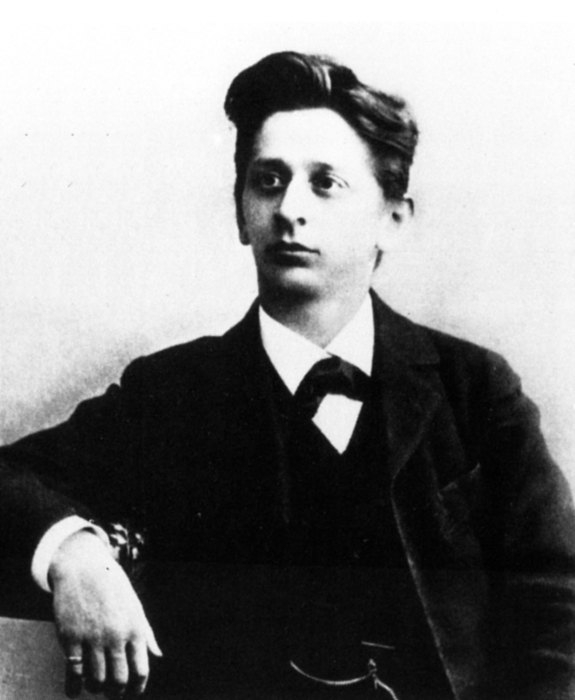
Alexander Zemlinsky
14 October 1871
15 March 1942 (aged 70)
- Conductor
- Composer
- Academic
Biography[edit]
Early life[edit]
Zemlinsky was born in Vienna to a highly diverse family. Zemlinsky's grandfather, Anton Semlinski, emigrated from Žilina, Hungary (now in Slovakia) to Austria and married an Austrian woman.[1] Both were from staunchly Roman Catholic families, and Alexander's father, Adolf, was raised as a Catholic. Alexander's mother, Clara Semo, was born in Sarajevo to a Sephardic Jewish father and a Bosniak mother. Alexander's entire family converted to the religion of his maternal grandfather, Judaism, and Zemlinsky was born and raised Jewish. His father added an aristocratic "von" to his name, though neither he nor his forebears were ennobled. He also began spelling his surname in Hungarian[2]"Zemlinszky".[3] He was also a freemason.[4]
Alexander studied the piano from a young age. He played the organ in his synagogue on holidays, and was admitted to the Vienna Conservatory in 1884. He studied piano with Anton Door, winning the school's piano prize in 1890. He continued his studies until 1892, studying theory with Robert Fuchs and composition with Johann Nepomuk Fuchs and Anton Bruckner.[5] At this time he began writing music.
In Johannes Brahms, Zemlinsky had a valuable supporter. In July 1892, on the invitation of Zemlinsky's teacher Johann Nepomuk Fuchs, Brahms attended a performance of the first movement of Zemlinsky's Symphony in D minor at the Conservatoire.[6] In March 1896, Brahms attended a performance of Zemlinsky's String Quintet in D minor by the Hellmesberger Quartet.[7] Impressed with Zemlinsky's music, Brahms recommended the younger composer's Clarinet Trio (1896) to the N. Simrock company for publication.[8]
Notes
Sources